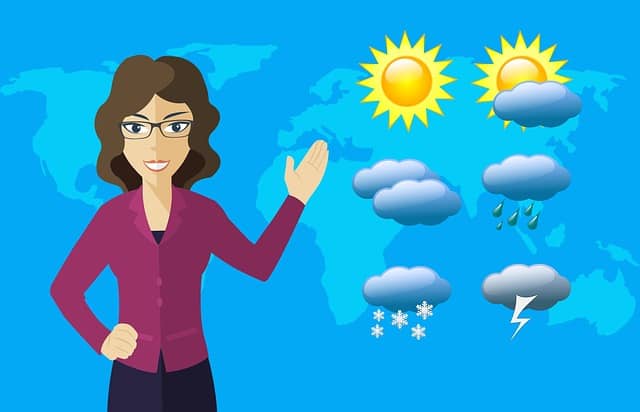The news forecast and the detection of major natural disasters can be complicated by wireless communication technology
The 5G, or fifth generation of wireless communication technologies and standards, will bring greater speed and robustness in our connections, but, according to experts, will lead to a change in weather forecasts.
Meteorologists, lawmakers and federal scientific agencies in the United States are already warning: the weather forecast in the near future, with the gradual implementation of 5G, will be much more complicated.
And this issue is not trivial in the country that governs Donald J. Trump, as 5G will affect “Earth observation satellites, which are vitally important to protect the lives and property of the American people from severe weather conditions“, says the country’s Science, Space and Technology Commission, a body that has jurisdiction over scientific research and development at the federal level.
Radio waves
The dispute has its origin in the auction to communications providers of the waves through which the 5G signals will travel. Scientists argue that it will interfere with meteorological satellite measurements, ruining the reliability of the forecasts needed to plant crops, ship merchandise worldwide, or simply plan ahead for a trip. Against that, the mobile phone industry promises that 5G will become a $ 565 billion industry in 2034, making its adoption a priority of the Trump administration.
As BuzzFeedNews tells us, this year the Federal Communications Commission auctioned 24 gigahertz radio frequencies for 5G transmissions, very close to the frequency of 23.8 gigahertz at which water vapour molecules vibrate in the atmosphere. Weather satellites continuously monitor that subtle moisture signal, which is an essential ingredient for accurate weather forecasts.
The antennas of the mobile that transmit 5G signals near that frequency could cause confusion for the meteorological satellites and, essentially, provide erroneous data on the state of the atmosphere, which are used as meteorological models worldwide.
These weather models create the daily and weekly forecasts seen in the news but are also used to predict floods, storms and hurricanes. “It’s just physics”, says meteorologist Jordan Gerth of the University of Wisconsin, Madison. “You can’t just tell water molecules to change the channel, or to use another frequency.”
Ajit Pai, president of the Federal Communications Commission, said a few months ago that NASA and the National Oceanic and Atmospheric Administration, which had requested that the frequency band auction be delayed, were making “exaggerated and unverified claims of last-minute”, claiming that the auction amount had involved nearly $2 billion in the United States Treasury revenue.
Lucrative business
For Gerth, the problem is quite complicated to alleviate, since the interference that will cause our phones with 5G will be random. According to this meteorologist, there is little chance that satellite operators can detect the interference of their measurements in a systematic way. A blackout of the 5G signal while the satellite passes through certain regions could be a solution, although it seems very complicated.
